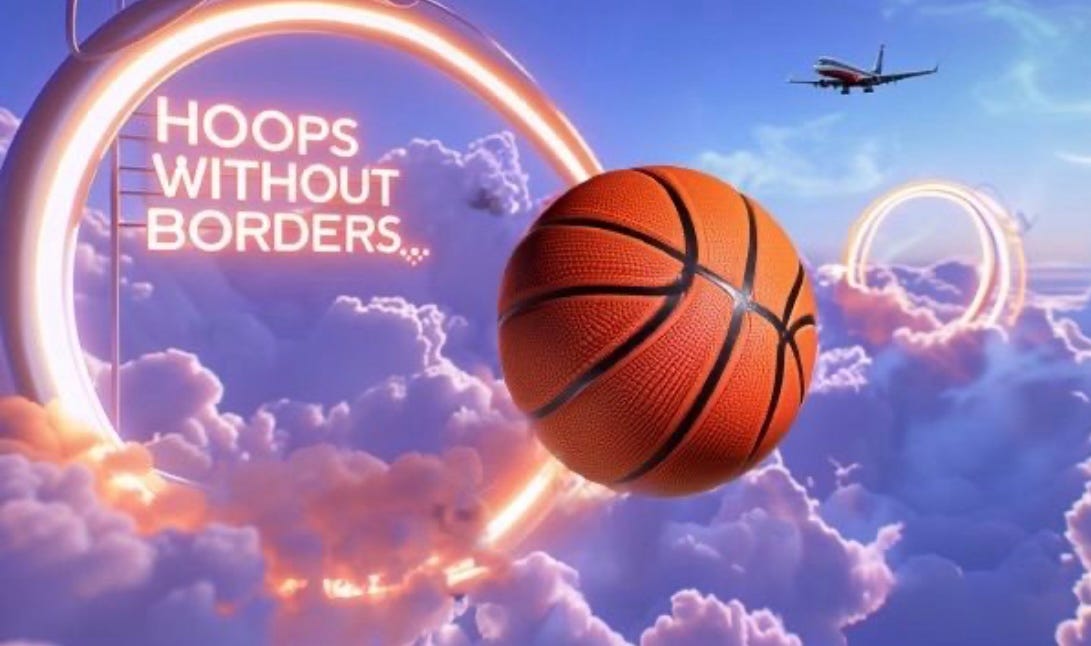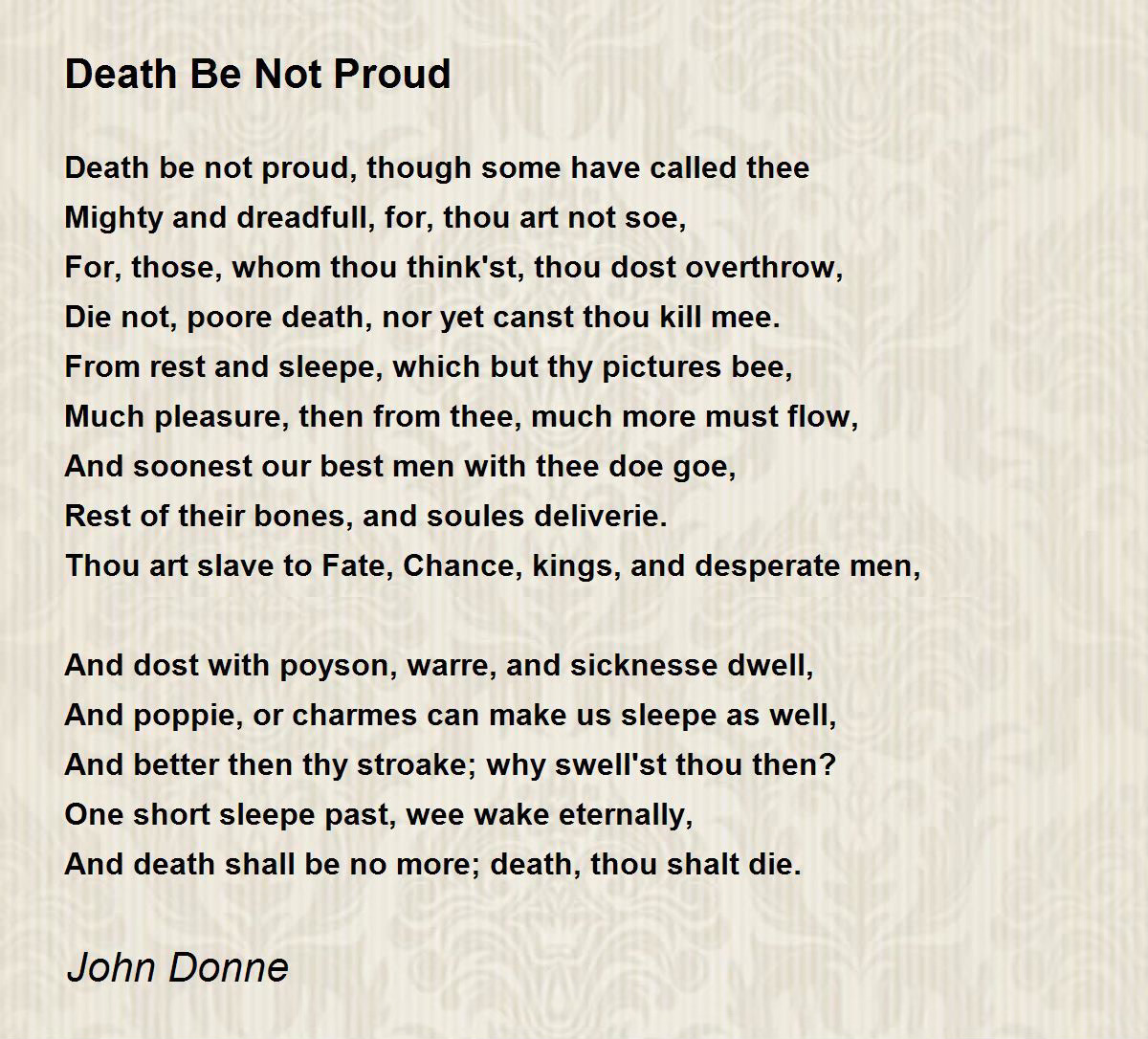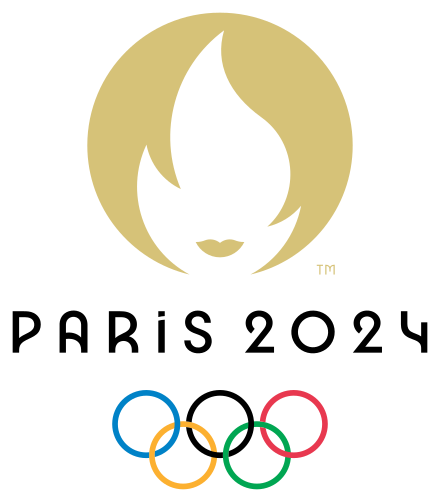While We’re Young (Ideas) From the Lyons’ Den

By TERRY LYONS, Editor of Digital Sports Desk
CLEVELAND – There’s a new sports series in the works that is near and dear to the many of us who helped create, Basketball Without Borders,” the NBA’s amazing player and life skills development camp that began in 2001 and grew to the point where it was staged on four continents.
The new series – Hoops Without Borders – will begin with an amazing pilot episode to be produced by Pollack Films with the goal of becoming a regular television and OTT streaming series.
Produced by Michael Pollack – nephew of the legendary Sydney Pollack (1934-2008) – (think 1960s TV The Fugitive and The Alfred Hitchcock Hour, along with 48 Academy Award nominations, with 11 Oscars in the trophy case) and ten-time sports Emmy Award recipient George Veras, – the series offers a deeply emotional and transformative journey, revealing the untold stories of players who have embraced the world as their arena.
The heart of Hoops Without Borders lives within the incredible story of Andy and Cindy Bountogianis. Their tireless dedication to the game of basketball and representing talented, young players has placed 109 American professional basketball players in leagues across the globe.
“This series takes viewers to countries such as Italy, Greece, Japan, France, and Turkey, and delves deep into the lives of American basketball players whose journey transforms them into global ambassadors,” said Michael Pollack.
The production will involve two other Emmy Award winners, in film editor Eric Welshenbaugh, a 2021 Emmy recipient for his work on the Summer Olympic Games, and Arthur Allan Seidelman, Pollack Film’s Head of Production and two-time Emmy Award winner.
“Surrounded by the exciting challenge of championship basketball, we see the world through the eyes of dynamic young athletes testing their skills and expanding their horizons,” said Sideman. “Competition leads to friendship and friendship to understanding. The game of basketball becomes a ticket to the world.”
Seidelman also boasts another five Emmy nominations and numerous prestigious awards, including the Humanitas Award, a Peabody Award, Western Heritage Award, and three Christopher Awards.
At the core of this series is Andy “B” Bountogianis, a man whose rich Greek/American heritage and relentless pursuit of helping others took him far beyond his familiar streets of Elyria, Ohio.
“These players are like family to us,” said Bountogianis. “For me, it’s an honor and privilege to help them navigate their careers and, in doing so, they have the opportunity to experience what the world and their basketball careers offer.
“Each and every day my responsibility is to inspire and motivate them to become the best they can be,” he said.
With his wife Cindy, they’ve built a global family of 109 players (and counting), all bound by their love of the game and the adventures of life.
“It is a joy for me to be with Andy as part of the team. I am in awe of his constant drive, loyalty, integrity and honesty. These are qualities that you rarely see today. The joy he brings to so many, to the families, is truly amazing,” commented Mrs. Bountogianis.
Lee Zapis, media and software investor and Co-Producer/Creator, conceived the series concept, noting, “I’ve watched Andy and Cindy dedicate every day to making sure all their players are being taken care of around the world. I thought these player stories were unique and could become a streaming series. I’ve also known George’s (Veras) documentary work for decades. I put the two groups together and I’m excited to be part of the project” said Zapis.
“Hoops Without Borders,” noted Veras, “is more than a sports documentary. It’s a journey of the human spirit, fighting through adversity, and embracing the world one country at a time. It’s about personal growth, resilience, and the beautiful game that brings us all together.”
Dozens of players’ stories form the lifeblood of Hoops Without Borders, here are a few examples:
Donta Hall: From the tight knit community of Luverne, Alabama, to the glamorous courts of Monaco (Monte Carlo). While watching his son’s middle school basketball game, Donta’s father suffered a fatal heart attack. It took two years to overcome the grief, but Donta went on the stardom at the University of Alabama. This journey is a heartfelt tale of transformation, illustrating how the sport has shaped him into a beloved figure in a principality of many cultures.
Ike Joseph Udanoh: Raised in Detroit’s challenging “8 Mile” neighborhood, Udanoh faced adversity early on in his life. Abandoned by his father shortly after birth and later by his mother during his teenage years, he struggled to hold onto his dreams in the international basketball scene. Finding himself homeless at a train station in Nuremberg, Germany, his fortunes changed when an Army sergeant from his hometown, stationed at Wiesbaden Army Base, came to his rescue. With her support and the help of others, Udanoh returned to the basketball courts. Today, he lives in Milan, is married to an Italian woman, and cherishes their beautiful daughter, surrounded by the loving family he always dreamed of having.
Jordan Morgan: With his remarkable academic and athletic achievements, Morgan’s journey from the University of Michigan to international leagues is a testament to love, resilience, and the enriching experiences shared with his wife, KT. Together, they capture and share their adventures through an engaging travel podcast.
Kosta Koufos: Rooted deeply in his Greek heritage, Koufos’ journey from Canton, Ohio, to the global basketball stage highlights the unbreakable bond of family and culture, showing how sport can honor and extend a player’s roots across continents.
Jordan Loyd: Hiss journey, marked by familial sacrifice and his triumph with the Toronto Raptors’ NBA championship team, Loyd explores the high stakes and immense rewards of chasing his basketball dreams across the globe.
These stories, unique yet universally resonant, demonstrate the expansive influence of basketball. From fostering cross-cultural connections to inspiring profound personal growth, Hoops Without Borders captures the essence of the sport’s power to unite and transform lives.
“As Pollack Films’ CEO, I am proud to bring this series to life,” concluded Michael Pollack earlier this week when the pilot series was announced to the worldwide media and the prestigious Sports Business Journal in the USA. “Hoops Without Borders is a testament to the unifying power of basketball and the human spirit’s capacity to grow, adapt, and thrive all over the world. It’s a series about the game of life, played on the world stage, where every challenge faced, and every boundary crossed is a step towards a greater understanding of our shared humanity.
“We’ve successfully completed filming on location in Europe and in many cities in North America, said Pollack. “Currently, we’re in the process of selecting additional sites in the United States and around the globe to capture a diverse range of settings and stories.”
Basketball Without Borders, created by the NBA, FIBA and the United Nations was first staged in Treviso, Italy and organized to have the players and coaches from the five former Yugoslavian provinces all play together once again. NBA players, such as Vlade Divac and Toni Kukoc hadn’t played or worked together since the outbreak of the war and were happy to be reunited for the first time since they played (and won) at the 1990 Worlds.

HERE NOW, THE NOTES: When was the last time a section of a Sunday Sports Notes column included a fourteen-line poem (aka a sonnet), written by an English poet in the year 1609? Poet John Donne wrote the masterpiece but WWYI will paraphrase “Death Be Not Proud” to say, “Death ‘Be’ Everywhere.”
Just recently, we lost the great Bill Walton and the logo himself, Jerry West. There was a very significant disturbance in the NBA Force, as we were shocked by the death of colleague Bill Marshall, the man who taught the NBA (and maybe even Nike) how to sell licensed apparel. Marshall was near and dear to the hearts of everyone he came in contact with, especially the NBA Consumer Products Group which Marshall started and headed-up in the league’s heyday, going from about a $1.50 in revenue to some $2 billion in licensed products sold, all with a hefty percentage being distributed by the NBA teams. The business grew from there. … Furthermore, just this week, the news of front office man (GM, and many other lofty titles) Pat Williams’ death from viral pneumonia just crushed a legion of NBA lifers. Williams was an innovator, a character, a comedian but most importantly a very successful cornerstone of NBA franchises in Philadelphia and Orlando. Quite frankly, the Orlando Magic might not exist if it weren’t for Pat Williams, and his stroke of good luck in the NBA Lottery brought Shaquille O’Neal and Penny Hardaway along for the ride.
Suffice to say, there’s been a few too many deaths announced in our rather small world of sports. One struck rather hard for this columnist early this week when hearing of Joe “Jelly Bean” Bryant’s passing.
As with the passing of Jerry West and the request sent out to Washington DC basketball man Chuck Douglas for permission to use his tribute to best explain West’s impact on the NBA, this weekend, it was an even bigger favor to ask Philly/Houston columnist Fran Blinebury for permission to use his memorial to his friend “Jelly Bean.”
Editorial Note: To be sure young column readers know a little about Joe “Jelly Bean” Bryant, he was a very talented and entertaining, 6-foot-9 NBA journeyman who played in the league from 1979 to 1983 before finishing-up his pro career in Europe. That’s where part two comes in. Yes, the late, great Kobe Bryant, as in Kobe “Bean” Bryant was born in Philadelphia but raised in Italy when his father was playing in the likes of Rieti, Reggio Calabria, Pistoia and Reggio Emilia. Those years, those cities were Kobe’s formative years.
Blinebury tells it better than anyone on the planet, but two words of advice: Sit Down. Here we go:
“It was often said that there was nobody like Kobe Bryant. But that was only true if you never examined the limbs on the family tree.
Joe Bryant, his father, is where a young twig learned to branch out toward the sun and reach for the sky. At 6-10, Joe was part-time low-post presence, part-time would-be point guard and full-time showman who wore a smile that could fill up any basketball court.
Joe died on Monday following a massive stroke, leaving behind a legacy that was both unfulfilled and unparalleled.
In eight NBA seasons with the Sixers, Clippers and Rockets, he averaged just 8.7 points, 4 rebounds and 1.7 assists. Yet long before LeBron James’ name and reputation delivered Bronny to social media and the Lakers, Joe gave the game an act that lived up to all of the hype.
Biologically speaking, it goes without saying that there would have been no Kobe without Joe. But in those genes was also a DNA strand that dared to be different, to push boundaries.
“Jellybean” Joe yearned to be noticed in a three-ring circus Philadelphia locker room already inhabited by Julius Erving, George McGinnis, Doug Collins, Darryl Dawkins and World B. Free, to name a few. That his free-wheeling game could not earn the respect of coaches Gene Shue and Billy Cunningham made him chomp at the bit.
Joe was a nonpareil, a blazing palette of color and look-at-me personality.
When an LA Lakers rookie took the league by storm in 1979, Joe said, “I can do everything Magic Johnson does and I’ve been doing it longer.”
Thus, where Joe laid the foundation with his innate confidence, Kobe took it to the next level with his sheer brazenness.
While Kobe could be standoffish and cold, Joe was everybody’s friend. We attended La Salle College in Philadelphia together in the early 1970s. He was the star athlete and I was a young writer on the staff of the student newspaper. He loved to talk and fill up notebooks then and he loved to just play ball anywhere with anyone.
My old friend Jack Feighan reminded me today of the time Joe showed up on the intramural courts to play with us and Jack managed to get off a shot that scored over the varsity star. Joe, as always, was laughing in a way that Kobe the cold-eyed killer never would.
I covered some of his early pro years in Philly and when we met up again in 1982 in Houston, his final NBA season, Joe had his young family in tow, including 4-year-old moppet, who would take the court after Rockets practices and hoist a ball toward the rim.
The sad part of the story is how father and son became estranged. We had lunch in 2005 and Kobe said, “You know Pops from back in the day?” And he proceeded to credit Joe for teaching him about the game, for taking the family to Italy and expanding his world horizons and encouraging what would become his boundless creativity.
When I ran into Joe once at halftime of a Lakers playoff game, he was bursting with pride. “He (Kobe) is everything I ever wanted to be as a player.”
They were barely speaking over the last decade of Kobe’s life and Joe had no public comment after the 2020 helicopter crash that took the life of his son and granddaughter Gianna.
On the day of the tragedy, Kobe the all-time great was frozen in Jurassic amber. On the day of his passing, Joe should be more than a footnote.
Imagine, a Jellybean begat a Black Mamba.”
– By Fran Blinebury

TID-BITS & GOLDEN NUGGETS: Next weekend we’ll be enjoying the full schedule of the Summer Olympics, the Games of the XXXIII Olympiad which will be played in Paris, France and assorted other places (like Lille for basketball), (futbol in places like Bordeaux, Lyon, Nice and Marseille), Shooting in Châteauroux, and don’t forget surfing in Tahiti. It’s not the first time, the Olympic venues are spread out and thus increasing ticket sales opportunities for neighboring cities, especially for multi-purpose, 60-80,000 seat stadiums. … At Sydney 2000 – the city that ran the perfect Olympic Games in these eyes – futbol was played in Melbourne, Australia. That coincided with the fact the USA Basketball men’s Olympic team trained in Melbourne before making the final approach to Sydney. Except, there was a glitch. The World Economic Forum was taking place in Melbourne at the same time and protestors appeared from every corner of the earth, fully surrounding our hotel – the Crown Casino. Police barricades were everywhere and we had to be escorted to our nearby practice facility – one day traveling by river ferry rather than an Autobus. One thing led to another and the decision was made to head out of Dodge a few days early and occupy Parramatta, our home for the Sydney Games. … Under the cover of darkness, our USA contingent loaded-up the buses and gear and off we went. Destination Airport was side-tracked for a minute as the head protestor of S11 was granted his wish to “inspect” the USA bus to be sure no World Economic delegates were hiding or escaping. It was rather hysterical, as a guy, dressed in black – call it “Goth,” walked up the first few rows of the bus, looking up and down for the likes of Bill Clinton or, maybe, Bill Gates. Just as the guy – who was dressed as only The Cure’s Robert Smith could dress for a show, a few voices from the gallery in the back of the bus shouted, “send that guy back here!” … No, it couldn’t have been Gary Payton’s friendly tones, could it? … Fully inspected and cleared as a “bunch of American ballers,” according to the Cure impersonator and head honcho for shutting down the WEF 2000, we were off. … Just another day in the lead-up to the Olympics and we said, “Hello Parramatta,” just as the Olympic Torch relay made its way through the town. What timing! … There’s NOTHING like seeing the REAL Olympic Torch flame in the days leading up to the Games. If that doesn’t psych you up, nothing will. Our USA Basketball contingent, often criticized as the millionaire basketballers, were like little kids, glued to the windows of our bus, then jumping off as the bus stopped in front of our little commuter hotel efficiencies to get a better look. … Lastly, it took about two minutes to eye-ball a little steakhouse across the street, and the V-B sign outside might’ve tipped us off that some cold Victoria Bitters beer was being served 24/7. Of course, you could go for a Crowne (just like old school Michelob), Toohey’s Extra Dry, Hahn’s – or if in a real bind, Foster’s. … We quickly learned Foster’s was NOT “Australian for Beer,” as it was a cast-away, treated as though it was Busch, Schmidt’s, Lone Star, or Natty Bo. … Generally, it was a round of V-B’s for the house, which included a whole crew from Canada’s CBC Sports. They were like a gift from heaven. Great crew, as friendly as greeters from Come From Away – just great people to hang out with for the next two-or-three weeks. … Parramatta was about 15 miles west of Sydney but the town – which doubled as Astoria, Queens for yours truly – was tremendous, complete with a major rail station and trains that ran like Swiss Timing watches. … On the first night, power forward Vin Baker offered to cook-up a full barby for TEAM USA. It was steaks and burgers for EVERYONE. Baker secured two grills and enough steak to feed the 185th Infantry. It was great, until we hung something on the sprinkler system nozzle.
There will be more “behind the scenes” of the Olympic Games stories in the weeks to come.
